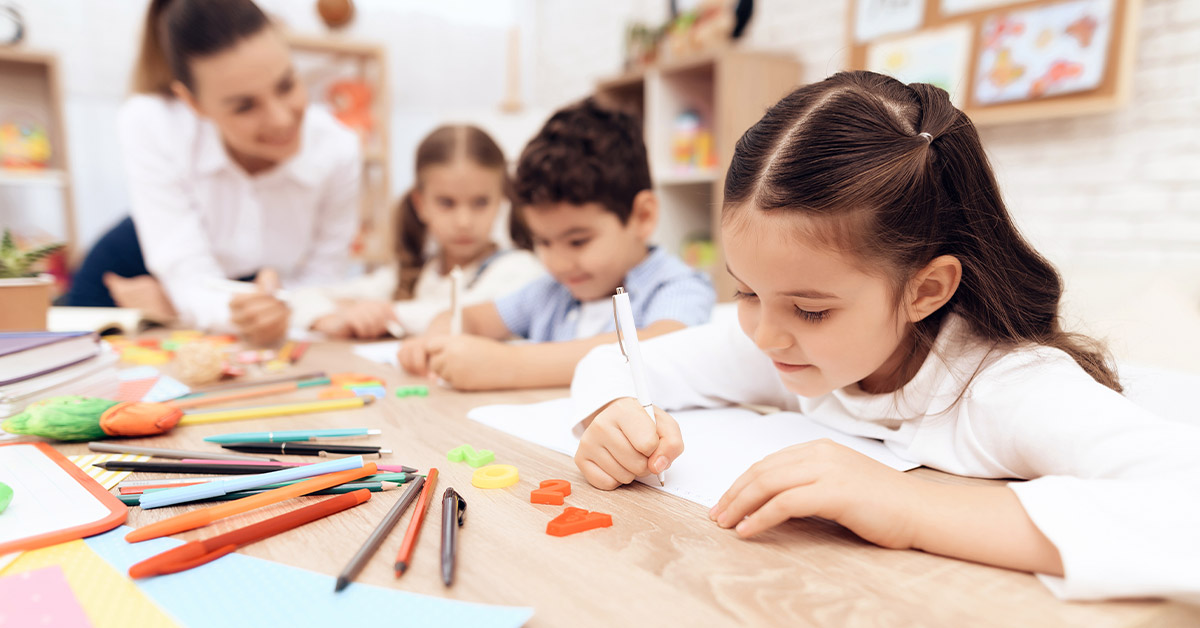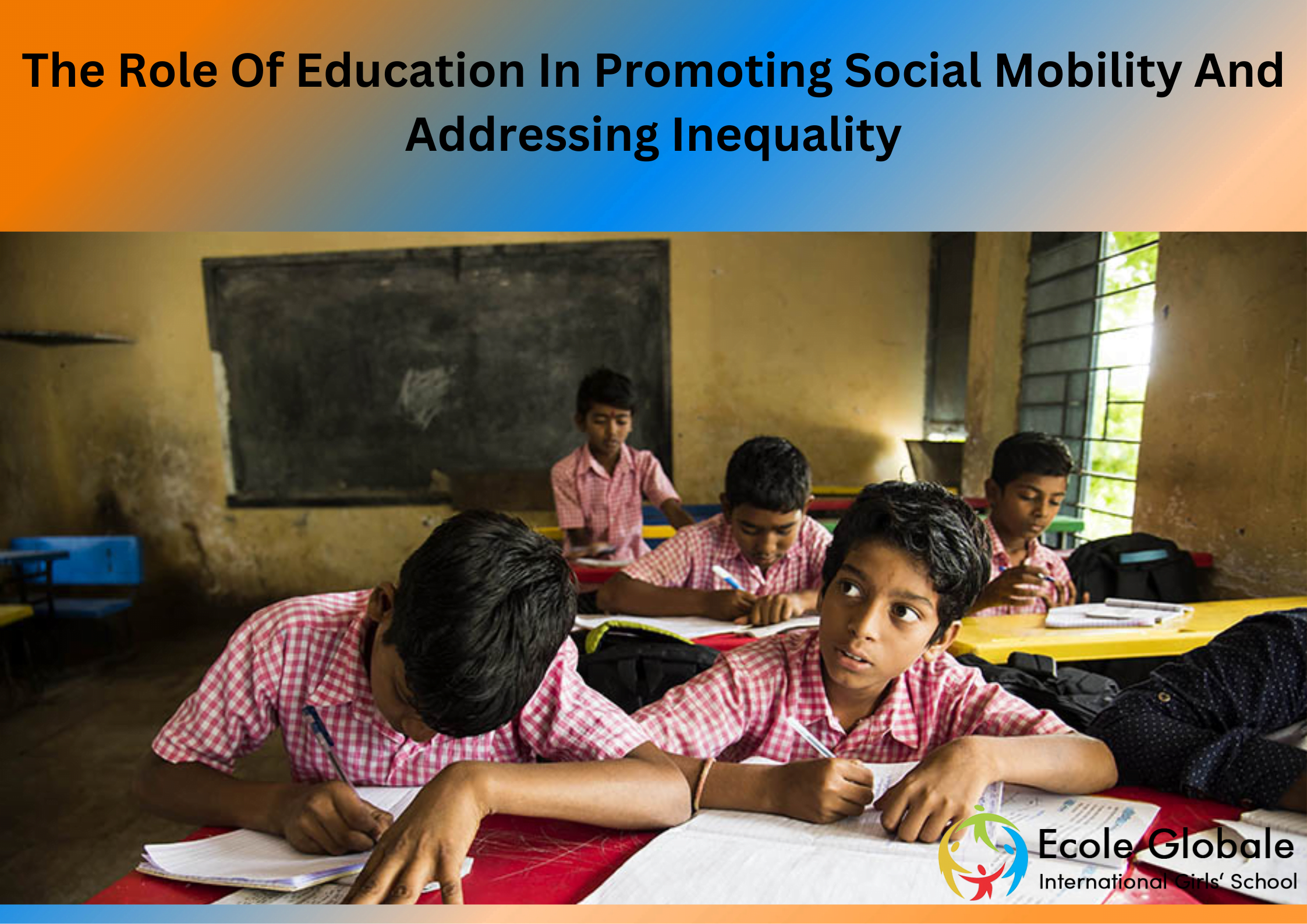Education has a progressive element, in which those who get it benefit more than those who don’t. Education is a fantastic investment in your future, but what are you paying for? It’s easy to believe that all you’ll get out of a degree is high levels of debt and a poorly paid job, but this isn’t the case.
As per Research Conducted by Boarding School in Dehradun, Education isn’t only about career development and earning more – it can also play a vital role in bringing social mobility to your family and eliminating inequality.
Education is a powerful tool for promoting social mobility and addressing inequality.
It’s also important to remember that education isn’t just about knowledge. It’s about opportunities, too. In many ways, it’s easier to learn when you’re surrounded by people who have similar interests and goals as you do. That can make it easier to get through hard times and feel like you have a support network behind you.
That’s why access to education is so important: it helps us all be better at what we do because we’re able to surround ourselves with like-minded people.
Also Read : ROLE OF EDUCATIONAL CONSULTANCY IN PROCESS OF EDUCATION
Education Levels Are Linked To Earnings

Education enables children to develop the skills they need to find a job, earn a good income and improve their standard of living.
In India, the average income rises by around 6.7% with every additional year of education, according to research commissioned by the NGO, Population Foundation of India.
In terms of an individual’s potential earnings, the study discovered that every rupee spent on finishing their education is anticipated to result in a financial gain of between Rs. 4.5 and Rs. 8.2.
The report estimates that it will cost Rs 8,134 crore to build suitable mental health facilities for teenagers over the next six years.
The report’s findings, however, indicate that an additional Rs 2,745 crore will be required annually to pay the therapy costs.
According to the report’s estimations, it would cost around Rs 3,000 crore annually to provide iron and folic acid tablets to adolescent boys and girls who attend school and adolescent girls who are not enrolled.
Young people continue to invest in their education despite the persistently rising unemployment rate because they anticipate making more money in the long run than those with less education.
In addition to education per se, additional attributes like greater abilities, ambition, diligence, and better endowments like parental money and position may also contribute to educated employees’ higher earnings, all of which impact enrollment in higher education. Thus, a mixture of these and other socioeconomic characteristics can be seen in their earnings.
Education Is A Key Differentiator Between The Elite And Less Privileged Children

The privileged children have access to the best schools, teachers and parents that can provide them with an education that will set them up for success in life. The less privileged children are usually not able to afford to go to school because their parents could not afford it or because they did not have access to good schools.
A lot of these children do not get an education, which means they cannot get jobs and this causes them to be poor. Some people think that this is unfair because there should be a way for everyone to have access to education so that they can get a good job and make money.
Elite children are taught how to succeed. They are given lessons on how to achieve their goals and overcome obstacles, which can lead them to greater success once they grow up.
On the other hand, less privileged children are often left feeling like they don’t matter—that who they are doesn’t matter, that what they want doesn’t matter and that no one will listen to them. This can lead them to feel hopeless about ever achieving their goals or being heard by those around them.
The disparity between these two types of education has been shown time and time again through studies conducted by researchers across the world.
Inequality And Illiteracy

Inequality is a serious problem. It’s not just about the fact that some people have more money than others, or that some people can enjoy more opportunities in life than others. It’s about how the world works when some people have access to education and others do not when some people have the ability to read and write, while others cannot when some people can express themselves clearly while others struggle with communication.
Literacy plays a big part in this. The more illiterate you are, the less likely you are to be able to access information and resources that would help you improve your situation in life–or even make it possible for you to survive. Without literacy skills, it’s impossible to get an education or find work; if those things aren’t available, then it might seem like there’s nothing left for you but poverty and despair.
When people don’t know how to read or write, they’re unable to participate in the economy or education system as effectively as those who can. That means illiterate people are often unable to get good jobs or advance their careers—and if they can’t read, they can’t learn new skills or even understand what’s happening around them. They’re also less able to access knowledge about health care and social services.
That further exacerbates inequality because it keeps people from being able to provide for themselves and their families. That makes them more likely to need help from others and less likely to be able to give back through taxes or other forms of civic engagement.
Importance Of Education

Education is the most important tool a person can have to be successful in life.
Education is crucial because it opens up many opportunities for people. People who are educated can find better jobs, and make more money than those who aren’t educated.
They will learn about various subjects and areas of interest, which can help them decide what they want to do for their career. Additionally, education teaches people about different cultures and beliefs, which will help them become more understanding towards others.
Education also helps people develop their creativity and imagination by providing them with resources such as books or internet sites. These contain information on different topics such as science or history; this allows them to think outside the box and come up with new ideas which may prove useful later on down the road!
Education is the cornerstone of a better life. It gives us skills, knowledge, and general awareness that allows us to make a living. Education also allows us to have an enriching life and create more happiness for ourselves and those around us.
Adult Education Has Been An Essential Tool For Social Mobility

Adult education seeks to increase access to educational opportunities for adults who have passed the age of formal education, lost the chance to pursue a formal education, but now feel the need to learn anything, including literacy, the equivalent of a basic education, skill development (Vocational Education), and continuing education.
Since the First Five Year Plan, several programmes have been launched to promote adult education, the most notable of which is the National Literacy Mission (NLM), The former was established in 1988 to impart functional literacy to non-literates in the age range of 15 to 35 years in a time-bound manner.
NLM had educated 127.45 million people to read and write by the conclusion of the 10th Plan period, with 60% of them being women. 12% of Scheduled Tribes and 23% of Scheduled Castes each made up this group.
In India, the overall literacy rate was 72.98% in 2011 (males: 80.88%, females: 64.63%), up from 64.84% in 2001 (males: 75.26%, females: 53.67%).
Saakshar Bharat, a centrally financed programme, was put into place from 2009–10 to 2017–18 to reduce regional and social inequities and increase literacy rates to 80%, with a focus on women, SCs, STs, minorities, and other disadvantaged groups. No matter how literate a district was, it was included in the programme if the female literacy rate was below 50% as of the census of 2001, including the Left Wing Extremism impacted districts.
The main goal was to teach functional literacy to 70 million illiterates, 60 million of whom were women. The programme reached 1.64 lakhs Gram Panchayats in 404 districts across 26 States and 1 Union Territory.
In contrast to the overall goal of converting 7 crore adult illiterates into literates during the implementation of the Saakshar Bharat scheme.
Approximately 7.64 crore students who had passed the biannual Basic Literacy Assessment Tests administered by the National Institute of Open Schooling (NIOS) between August 2010 and March 2018 were certified as literates.
The Department of School Education & Literacy, Ministry of Education, Shastri Bhawan, New Delhi, is where the Adult Education Bureau is located. The Adult Education Bureau is organised into six parts, each of which has a distinct mission and set of duties.
It’s hard to imagine how our society would function if there were no way for people to learn new skills and gain knowledge after they had left school.
There would be no way for them to keep up with technological advancements, or stay abreast of a changing world. The idea that you would be able to improve your lot in life through your efforts would be a pipe dream without an adult education.
And yet, it’s about keeping up with the times; adult education allows people from all walks of life the chance to pursue their passions, learn new skills, and build relationships.
All things that make us better human beings and enable us to contribute more fully to society.
Conclusion
Education plays a crucial role in promoting social mobility and addressing inequality. Education has always been a vital tool for social mobility, giving people the tools they need to succeed in life.
The fact that the education system is continuously improving shows that it is constantly adapting to the needs of its students. And as technology and machine learning continue to advance, it will be interesting to see what new methods educators devise to provide their students with the highest educational quality possible.
For any queries related to parenting, schooling, or any student-related tips, click here to check out our latest blogs






